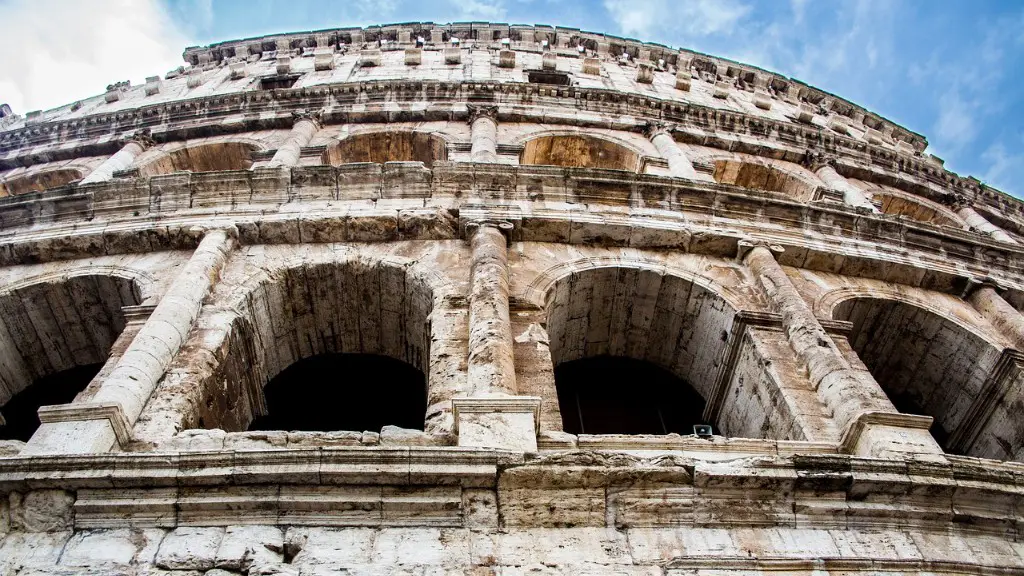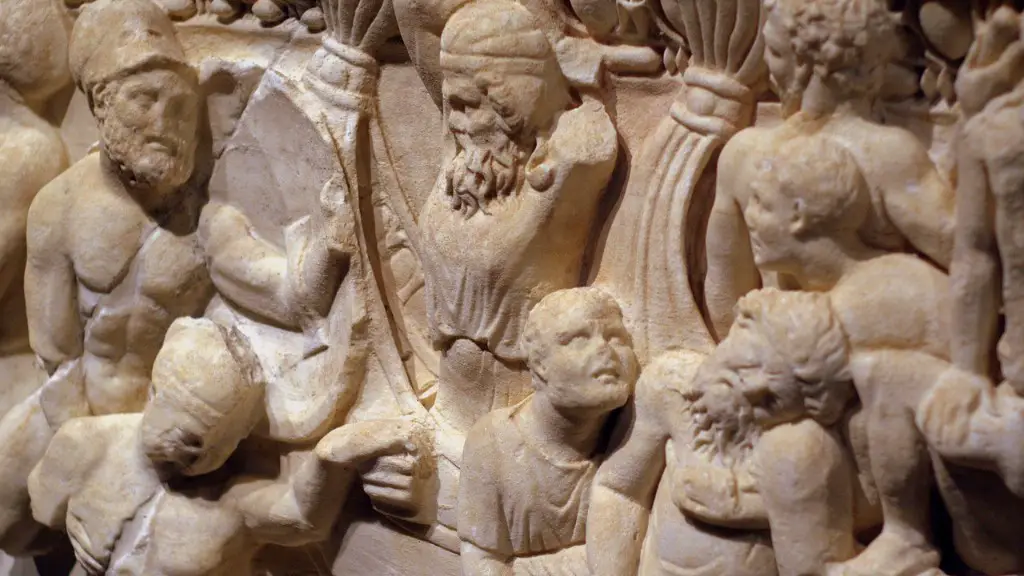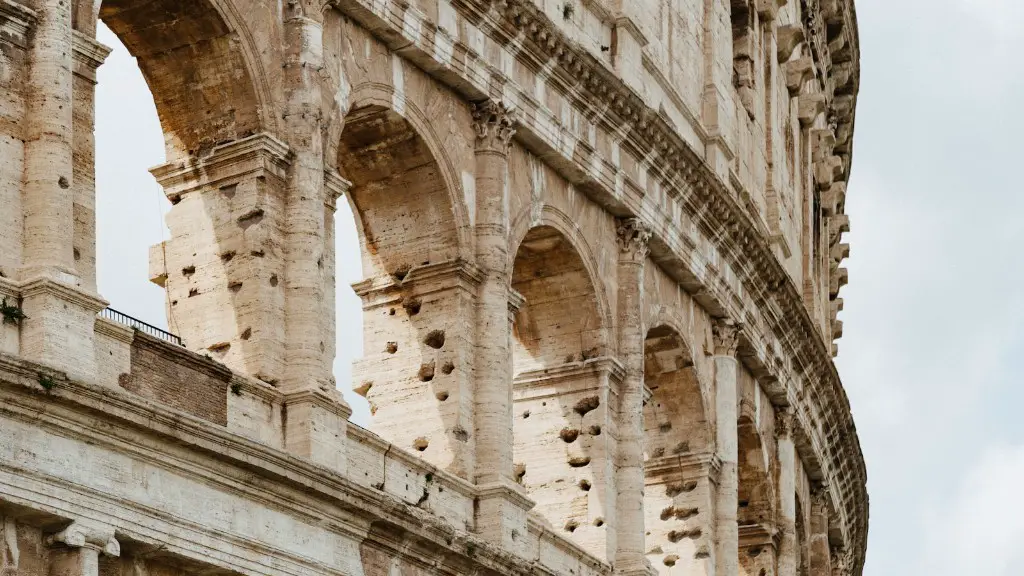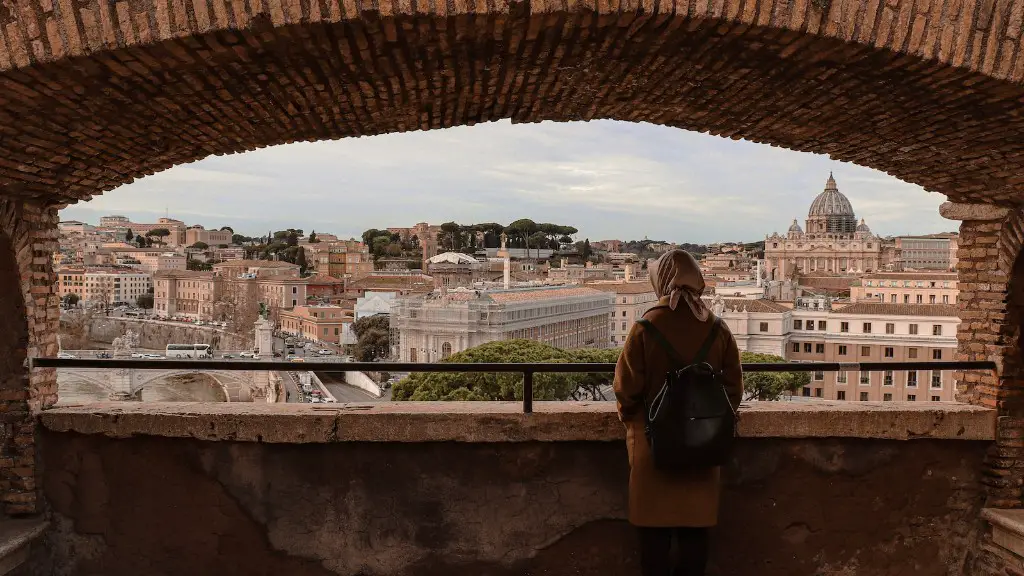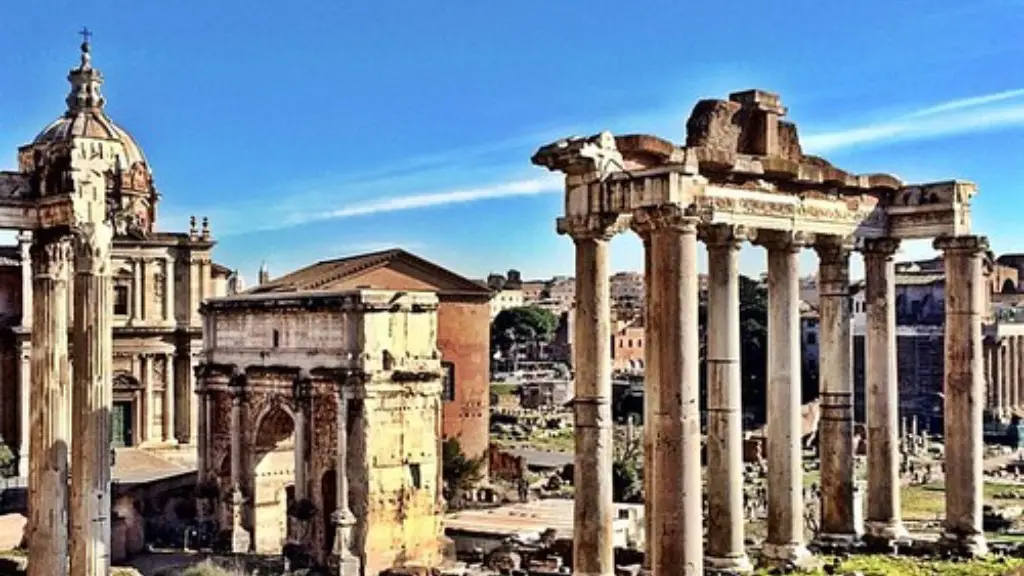Being a citizen of ancient Rome was an honour and deeply desired. Those who could become a Roman citizen were afforded significant rights, legal privileges, social advantages and protection from abuses of the state. The most common routes towards attaining citizenship during the Roman Republic and Imperial eras were birth, foreign adoption and military service.
The base and most reliable route to becoming a Roman citizen was by birth. In order to become a Roman citizen one had to be born to two Roman citizen parents, who had to be legally married. All property rights and qualities of being a Roman citizen were passed down to their children, however it was not possible for any non-Roman parents to become Roman citizens through their children. For many centuries within the Roman Republic and Empire, this was the primary form of attaining citizenship.
A less common form of attaining the rights of a Roman citizen were by foreign adoption. Many of Rome’s political and upper classes, such as tribes and patrician families, offered to take in foreign orphans and children in exchange for citizenship, as long as the child or foreign adult met the other requirements. This sort of adoption occurred frequently, allowing a number of foreign individuals from colonies and conquered nations to gain Roman citizenship and integrate into the ruling class.
The final route people could take to gain Roman citizenship had vast military implications. Individuals who joined the Roman military would often be rewarded with their freedom and citizenship. This was to encourage military enlistment, as well as providing precedence to soldiers who may have been born slaves. It provided a way for people of other Roma-controlled lands to increase their rights, as well as a path towards Rome’s social elite and prevent corruption.
In certain cases, Roman citizenship was also granted to foreign captains who had assisted with military operations, even though they were not of Roman origin. However, they had to be approved by the Senate, who also offered full citizenship to foreign political acolytes.
Despite the efforts of the Republic to promote citizenship, it was limited to only those of Roman birth, adoption and military service. Slaves, freedmen, the disabled and other non-Roman provincial people were not allowed to attain Roman citizenship. These people were not part of Rome’s social or political agenda and thus not considered for full citizenship.
Military Service
The military was an important institution within Rome, with a majority of citizens spending some time in the military. Citizens could serve as infantry and cavalry, and were paid wages on a regular basis. In addition, they were given food, weapons and armour and often received generous rewards following successful military campaigns.
Military service allowed citizens to gain status and respect in the eyes of their fellow citizens. Men of all ages and qualifications were able to join the military and gain honour and social privilege. Citizens had an obligation to defend their nation and serve their military for the betterment of their society.
A wide variety of citizens joined the ranks of the military, from farmers, traders, builders and craftsmen to merchants, physicians, scribes, teachers and slaves. Citizens who volunteered for service often had to sign a mutual agreement with the government, granting them three to eight years of one or more years of military service. Slaves, on the other hand, were usually required to serve for three to four years.
The military also provided a way for aspiring citizens to gain status in their society. Serving in the military offered a route to become financially independent and was also seen as a way to enhance the social standing and opportunities. Many citizens who joined the military would go on to become successful and powerful members of society.
Financial Benefits
Becoming a citizen of Rome was not only an important milestone but it also provided numerous financial benefits. Citizens were exempt from certain taxes, such as inheritances, while they enjoyed the full legal protection of Roman law. They also had extensive rights regarding trade and economic activity, as well as protection from physical violence, imprisonment and enslavement, allowing them to enjoy relative stability in the face of turmoil and warfare.
Citizens had banking privileges that extended beyond the scope of what non-citizens were allowed to do. They were also able to gain a variety of investments, have full access and control of their land and property, among other significant financial privileges.
Citizens also had the right to appeal against a court’s judgement, in contrast to non-citizens who were not allowed to get legal counsel and often found themselves powerless in the face of justice. This meant they had far more protection from the legal system, as any unjust or illegal decision made against a citizen was often appealed.
Being a citizen of Rome signified more than just an attachment to the state. It was a highly respected and valuable social trait; citizens had access to resources, protection and careers that many non-citizens did not. For generations, many Roman citizens enjoyed these privileges without fail.
Political Power
Citizens of Rome were far more powerful than non-citizens in terms of political power. Roman law gave citizens a wide range of rights and privileges, with most citizens entitled to vote, stand for office and participate in the running of the state. These rights were exclusive to citizens at the time, and although they were not universal, they provided them with a powerful political voice and influence in the affairs of Rome.
Citizens were also able to become members of the Senate, a powerful government body that had extensive control over legislative, judicial and military matters. This meant that citizens were not just able to participate in their state’s affairs more deeply, but their individual voices were also a key factor in the decision-making of the state. This also opened a range of opportunities for citizens to gain wealth and power, as well as social prestige and recognition.
As citizens, they also had a greater range of freedoms and personal liberties, such as the freedom of expression and religion. Citizens also had greater protection from the state, as in theory, the Republic was working for the best interests of its citizens. This made them far less likely to become victims to acts of government oppression, such as arbitrary detention or taxation without representation.
Social Standing
On top of the financial and political advantages of becoming a citizen of Rome, they also had extensive social benefits. In addition to the social advantages that came with attending public events such as festivals and theatrical performances, citizens also had access to a wide range of jobs within the public sector. These were often highly sought after, as they were well paid and provided status.
Citizens were also free to pursue more prestigious trades such as those related to science, philosophy, literature and the arts. These individuals were afforded far more respect and admiration than non-citizens, as they were looked upon as Renaissance men, admired for their exhibitions of wit, wisdom and knowledge.
In addition to the economic, political and social benefits of becoming a citizen of Rome, it also provided individuals with a sense of pride and identity that was distinct from those of non-citizens. Being a citizen of Rome meant one was part of a great Empire, with all the power, influence and respect that entailed.
Conclusion of Role of Citizenship
In summary, attaining Roman citizenship was an important rite of passage that allowed individuals to gain access to considerable legal, economic, political and social advantages. Through a combination of Roman birth, foreign adoption and military service, people from many different backgrounds were able to gain the rights of citizens. These advantages were a significant factor in Rome’s internal stability and continuity for centuries. In addition, citizens of Rome were also important members of their social and political life, as well as providing a legion of voices for change and progress.
